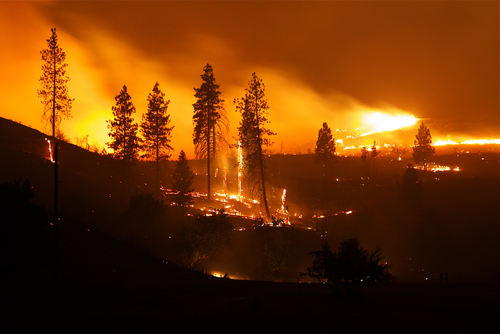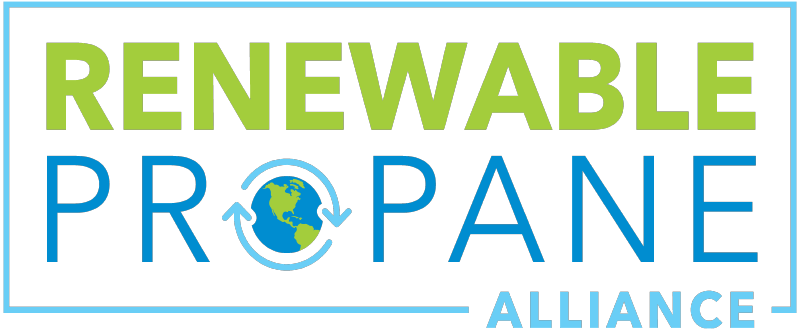Renewable Propane Alliance
Renewable Energy Production and Wildfire Mitigation Efforts
Forest waste, woody biomass and renewable propane production
Wildfires have been in the news lately, with the blazes in Canada causing significant air quality issues in the eastern United States. Wildfires put lives and homes at risk, and they release a massive amount of carbon and other harmful products into the air.
California officials certainly know something about wildfires. From 2010 to 2020, 11 percent of America’s third largest state was burned, compared to only 3 percent in 1970-1980.* The seven largest wildfires in California history have all happened in the last five years.** Drier conditions caused by rising temperatures are making wildfires more prevalent. Something as simple as a lightning strike can spark massive blazes.
Clearing out dry wood and other biomass has been a critical component (along with prescribed fires and managed wildfires) in reducing uncontrolled blazes. But how can you put this forest waste to productive use?
Renewable propane gas (rPG) production, along with the production of other renewable fuels, has a significant role in this process since woody biomass is a fantastic feedstock.

Wildfire Management and Renewable Fuel in California
In a Renewable Gas 360 roundtable, Matt Baker, then the Deputy Secretary for Energy for the California Natural Resources Agency, discussed the environmental quandary presented by woody biomass in forests. One ton of wood contains roughly 1.7 tons of carbon dioxide (CO2), which is released into the atmosphere if that wood burns. If the wood decomposes, though, it releases methane first. Methane is over 80 times more potent than CO2 at trapping heat over the first 20 years after it reaches the atmosphere.
Baker noted that, with increasing wildfires, California land was becoming more of a source of CO2 emissions than a means of containing them. He asked, “How can we capture the carbon value of that wood and achieve some of our goals?”
As part of an all-inclusive conservation and renewable energy strategy, his agency looped in renewable fuel production, including biodiesel, renewable natural gas and renewable propane.
Dan Adler of the Governor’s Office of Business & Economic Development noted that biofuel products have “the extreme benefit of capturing and sequestering carbon … and [creating] the input for a range of different final energy products that can be utilized.”
Essentially, diverting forest waste to fuel production puts it to use as residential and commercial energy. Otherwise, it would be a literal powder keg of CO2 and other greenhouse gases.
Forest Waste — Renewable Propane Feedstock
According to an October 2022 report from the National Renewable Energy Laboratory (NREL) about renewable propane production, biomass as an rPG feedstock is “much more robust and will be better suited to meet the renewable propane yield” than many other materials. The reason is plant waste’s wide availability and the relatively low carbon intensity associated with collecting and transporting it.
The primary process for converting forest waste to biofuel is called gasification/Fischer-Tropsch (FT) synthesis. In this process, the feedstock is heated at an extremely high temperature (700–1000°C), creating a synthesis gas. This gas is then cleaned, conditioned and converted into hydrocarbon products. Among these products is rPG, though FT also produces biodiesel, naphtha and renewable jet fuel.
As processes become more advanced and more production comes online, you can expect to see biomass like the wood cleared from areas vulnerable to wildfires playing a more significant role in a net-zero carbon future.
Energy Industry Strategists & Advisors

Tom Jaenicke
Specialties: Provides marketing services, technical advice, and business development assistance to privately held and public energy companies, product manufacturers, and support organizations.
Contact Tom
Let me know how I can help with your energy needs. Fill out the form below or give Tom a call at 810.252.7855
We take your personal information very seriously. We will not share any of the information you provide with any 3rd parties. Provided information will be used specifically to contact you in regards to your inquiry.





